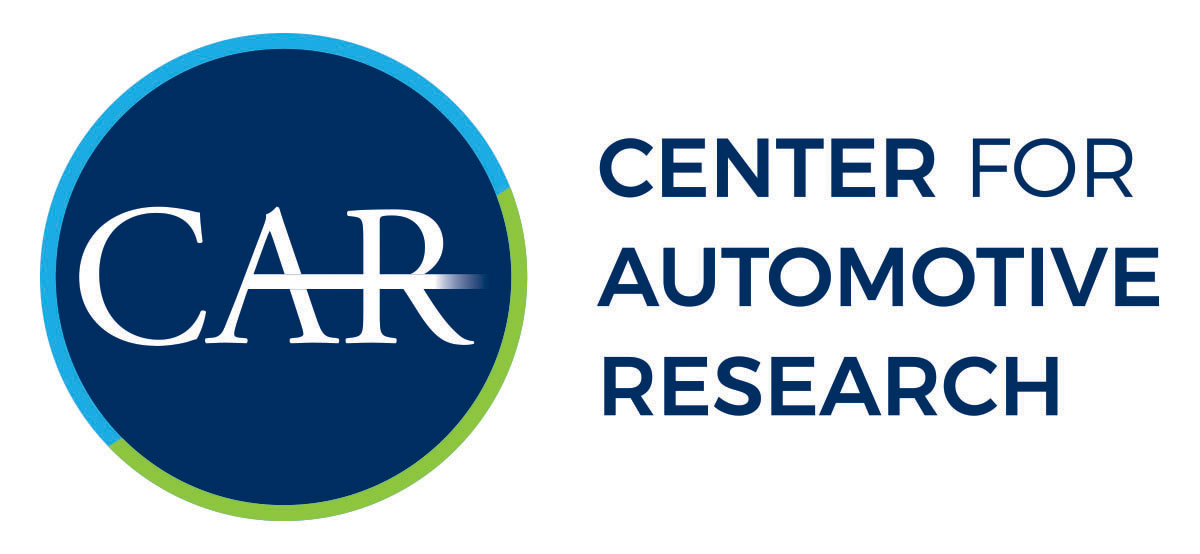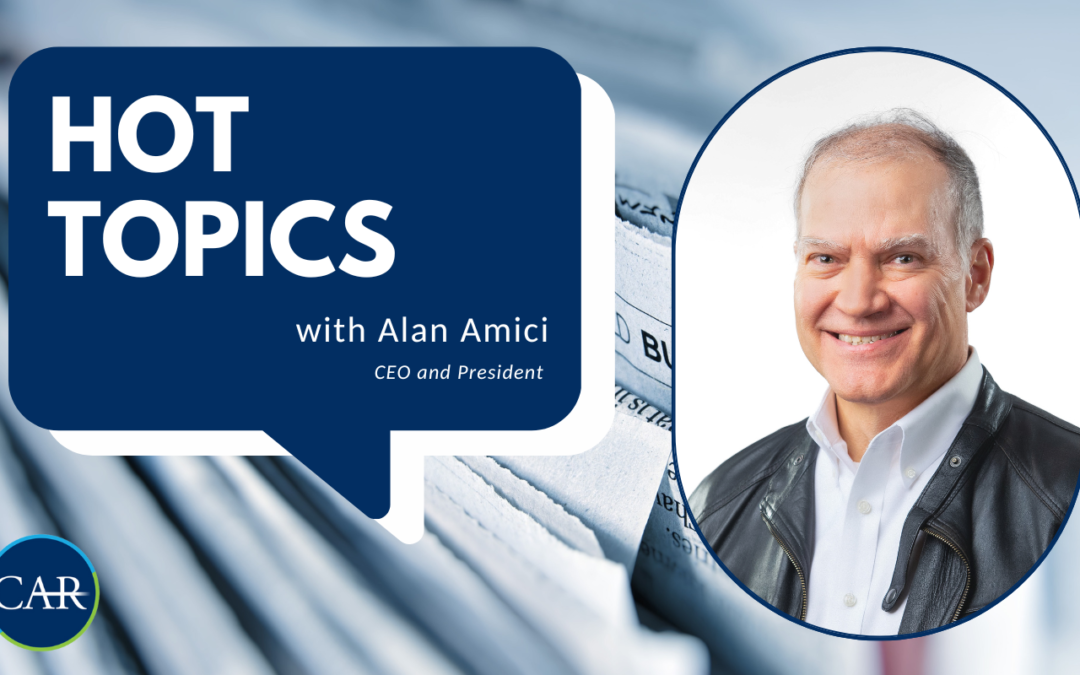HOT TOPICS WITH CENTER FOR AUTOMOTIVE RESEARCH CEO 03/31/2023
On a bi-weekly basis, the Center for Automotive Research (CAR) welcomes our audience to decompress with our President and CEO, Alan Amici, as he covers and shares his thoughts on the latest Hot Topics happening in the automotive industry. If you would like to receive this bi-weekly insight into critical industry issues you and your organization are facing, sign up for our mailing list here to get Hot Topics sent directly to your inbox.
EU Green Deal Industrial Plan:
- EU announces plans to lead green industrial revolution
- Austria not rowing back support for EU’s car CO2 law, minister says
- Factbox: What’s in the EU’s green industrial plan?
Alan’s thoughts:
The US is not alone in creating incentives for green technology. The EU recently unveiled targets for raw material mining, solar projects, and hydrogen fuel cells. Aware that the IRA created incentives for North American production of EVs and batteries, the EU is motivated to avoid auto manufacturers abandoning Europe for North America. What the US and Europe have in common is a desire to wrest control of materials mining and processing from China.
Addressing the Chip Supply Chain:
- Tesla’s plan to slash silicon carbide use sends some chipmakers’ shares down
- The latest numbers on the microchip shortage: A lull in the problems
- Biden administration aims to stop China, Russia from using chip funding
Alan’s thoughts:
This quarter automakers cut fewer vehicles from production due to semiconductor shortages than in recent quarters, suggesting we are nearing an end to the two–and–a–half–year chip shortage. This is good news for supply chain managers, electronics suppliers, and consumers, as vehicle supply could increase if OEM production schedules allow. Tesla’s forecast of using fewer silicon carbide-based transistors, a staple in EVs due to superior high–temperature performance compared to silicon transistors, is intriguing. The industry is still relatively early in the evolution of EVs, so this strategy is one of many innovations expected to lower the cost of EVs. There will be more as companies like GM, Ford, VW, etc., focus their engineers on EV systems and component optimization.
Supplying & Powering EVs:
- Fuel cells left behind by rapid EV sales, infrastructure growth
- Falling Lithium Prices Are Making Electric Cars More Affordable
- Scratched EV battery? Your insurer may have to junk the whole car
Alan’s thoughts:
Will hydrogen fuel cells power our passenger cars en masse? Not in the foreseeable future. But all is not lost for hydrogen proponents, as long-haul trucking presents an interesting and viable opportunity for hydrogen. The infrastructure for green hydrogen production and distribution is presently insufficient.
For EVs, affordability and profitability are tied to battery costs. As batteries are the single most expensive component in an EV, they present the highest cost and weight reduction opportunity.
The total cost of ownership (TCO) is a perceived benefit of EVs. However, unrepairable/unreplaceable batteries will significantly increase TCO in the form of higher insurance and repair costs. Companies that understand and consider such costs when designing EVs will have an inherent advantage in the long run. Do not underestimate the consumer’s awareness of TCO.

Alan Amici
President & CEO
Get our feature stories straight to your inbox.
Join our email list today and never miss our feature stories, publications, and event news.

